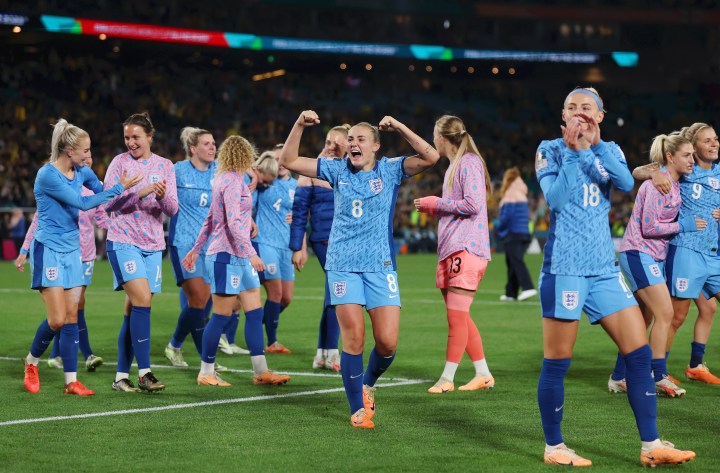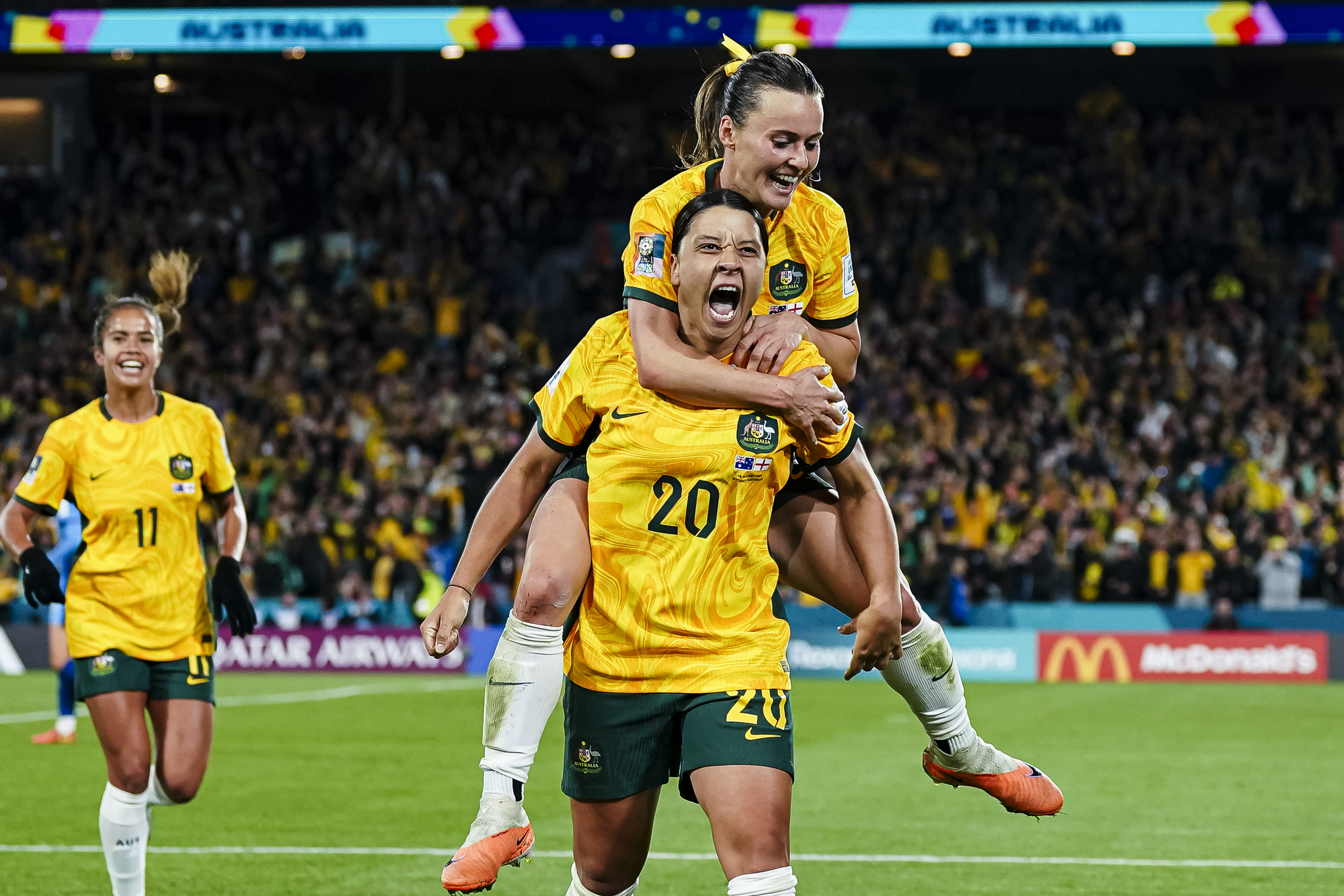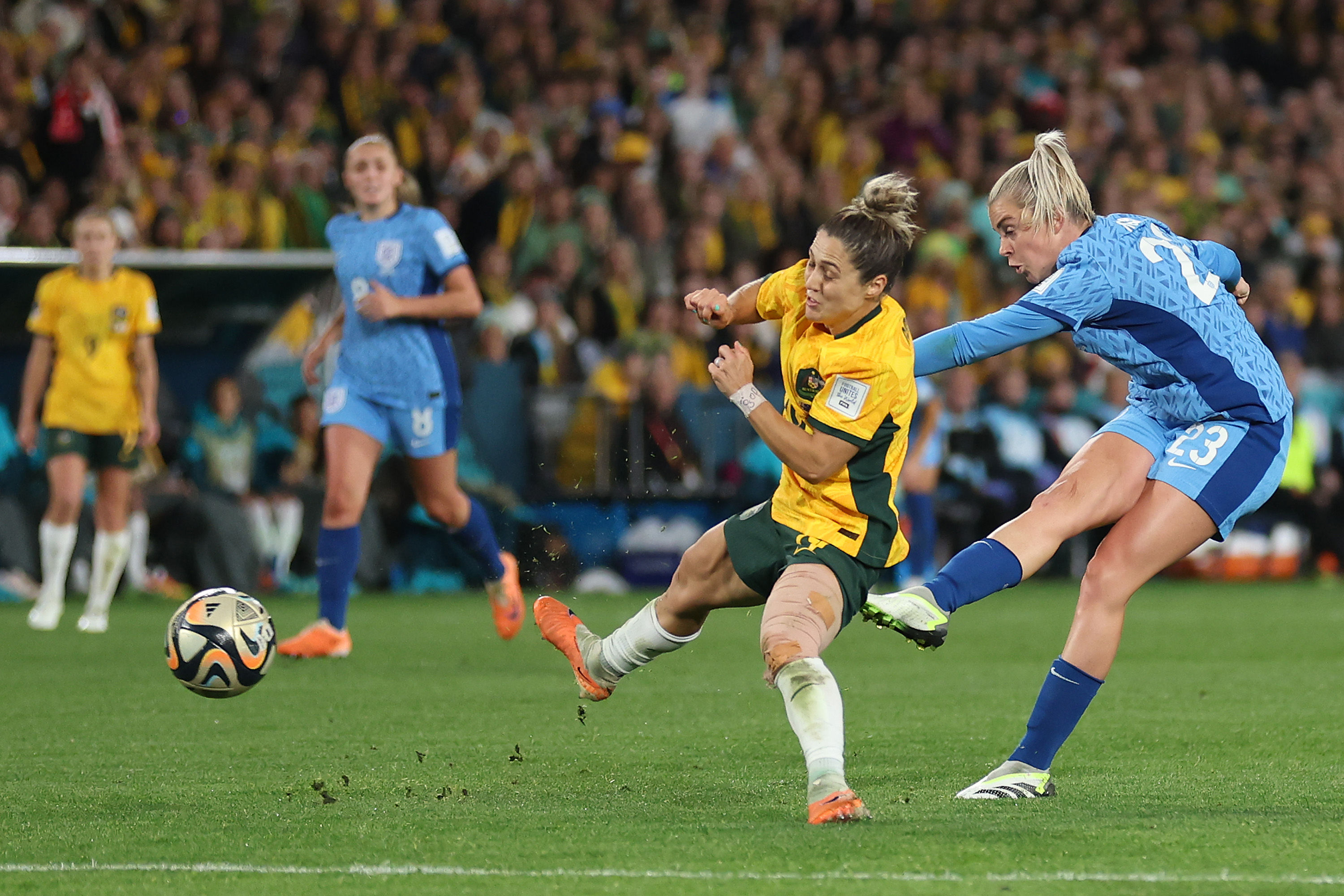LEAGUES MAKE NATIONS
England and Spain in final battle for Women’s World Cup glory on back of domestic league growth

As the Fifa Women’s World Cup nears its culmination, the two nations which have shown notable growth at domestic club level will be the ones to contest the final.
In the context of women’s soccer, a fully professional and thriving domestic league is not a magical elixir to cure some of the ills that still stunt the growth of the game on a larger scale.
In addition, having a successful league on home soil does not always mean said success will translate into national team success. A prime example of such is Italy.
In spite of the country having an extremely competitive premier division, and a second tier which is also strong, the Italians were bundled out of the group phase in the ongoing Fifa Women’s World Cup. Something which the players pointed out following their shock exit Down Under.
Read more in Daily Maverick: Banyana Banyana make history to advance to Women’s World Cup knockout stage
“It’s fair to ask how a national team made up of a core of 16 Roma and Juventus players, who have done big things in the Champions League, struggles a lot. First at the Euros and now at the World Cup,” read a joint statement from the players from Italy’s exit.
The coach of the nation that ultimately eliminated the Italians, Desiree Ellis, could not help but wonder where her team might have ended up had South Africa headed into the tournament with a fully professional premier division.
“We need a professional league… For the players to come out and perform at this level against countries who play week in and week out against the top teams in the world, it shows we have talent,” said Ellis after South Africa were ousted by a 2-0 loss to the Netherlands in the Round of 16.
In the past, the USA and Germany have ridden on the coattails of domestic league success and stability. For the longest time, the duo — which has won six of the eight World Cup editions amongst each other – went into tournaments as the two frontrunners.
On the way to their record of four World Cups, the USA was bolstered by the strength of the National Women’s Soccer League in its various guises over the past few decades. The top-flight of US soccer has produced stars such as Hope Solo, Megan Rapinoe, Carli Lloyd and Alex Morgan.
In turn, each of these players — alongside many other homegrown talents — played their part as the USA dominated the international scene for decades and fattened their major trophy haul.
Germany too used the strength of their domestic league to be an influential force on the international stage.
Germany managed to also build on domestic success as they won their two World Cup gold medals in 2003 and 2007. This during a time when German clubs were also dominating on the continental stage.
France, on the other hand, have never been able to use the momentum and trendsetting strides of their local league to propel themselves to a World Cup medal of any kind. The best they finished was fourth in 2011.
This is despite the fact that the Division 1 Féminine, France’s women’s top-flight, has been professional since 2009. On top of this, Olympique Lyonnais is the most successful individual team in women’s Champions League history. The French club has won eight European titles. Double more than second-placed Frankfurt of Germany.
The more things change…
The nations that have made it to the last four Down Under this all have professional leagues, with England and Spain leading the way.

Spain’s players celebrate at the final whistle of the Fifa Women’s World Cup semifinal. Spain beat Sweden 2-1. Both nations have strong women’s domestic leagues. (Photo: Joe Prior / Visionhaus via Getty Images)
Sweden – who once had one of the most attractive women’s soccer leagues in the world, but one which has since waned in global influence and popularity — still regularly reach the latter stages of the World Cup. As they have done in Australia and New Zealand this year.
In spite of having their own fully professional domestic league, the co-hosting Aussies cannot compete with their European counterparts for eyeballs when it comes to soccer. This is true for the rest of the world too. For both the men’s and women’s games.
Nevertheless, Australia’s Matildas have shown that they can mix it up with the best international players — even without their marquee player in Sam Kerr, who has featured sporadically in the tournament due to an injury suffered on the eve of Australia’s opening World Cup match.
Ironically, Kerr dons the colours of Chelsea in the English Women’s Super League (WSL). As do many of the players who were present at the 2023 global soccer spectacle.

Australia superstar Sam Kerr, who scored a brilliant goal in the Fifa World Cup semifinal against England, plays for Chelsea in the WSL. (Photo: Daniela Porcelli / Eurasia Sport Images / Getty Images)
In all, 94 players who played Down Under ply their trade in the WSL. Making it the most represented league at the 2023 tournament.
As an indication of how the league has grown, the figure is nearly double the player representation from the 2019 World Cup, in which 50 WSL players played.
Parallel with the WSL’s success and rise to be the most attractive league in the world has been England’s international success. The Lionesses are in the World Cup final and have a great chance to win it for the first time after claiming bronze in 2019. They are also the reigning European champions.
Similar can be said for the Spanish national team. Spain took its time to embrace the women’s game, but once it did, success followed. Just look at Barcelona, who have won the Champions League twice in the past three years.

Alessia Russo of England shoots while Katrina Gorry of Australia attempts to block during the Fifa Women’s World Cup semifinal between Australia and England at Stadium Australia on 16 August 2023 in Sydney. (Photo: Catherine Ivill / Getty Images)
That Barcelona success coincides with the Spanish premier division becoming fully professional in 2021.
Though nations such as South Africa, Jamaica and Zambia certainly made a splash in Australia and New Zealand, in spite of not having fully fledged leagues, the two nations of Spain and England — which have heavily invested in improving their domestic scene in recent years — will compete for the gold in the final on Sunday, 20 August. DM



















Comments - Please login in order to comment.